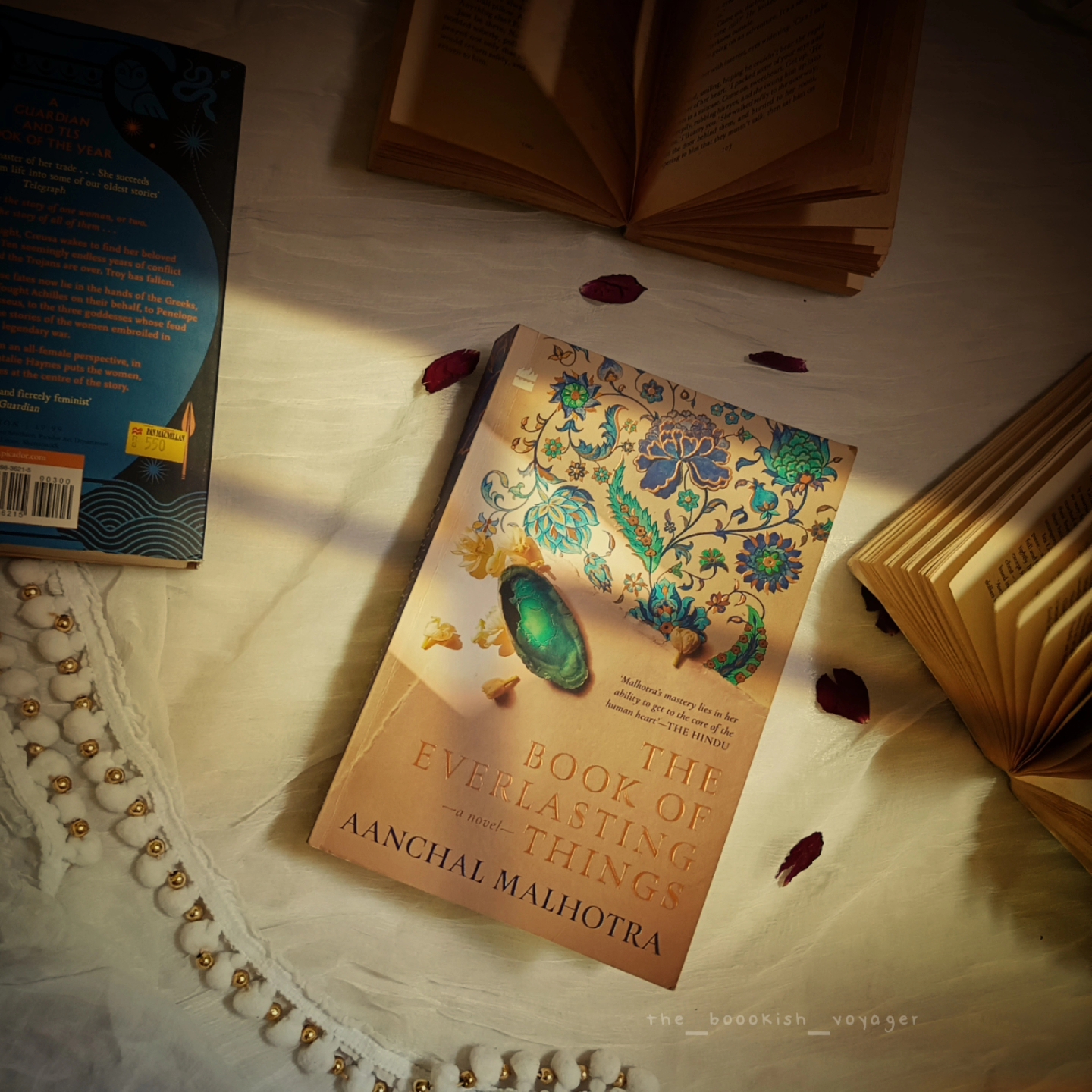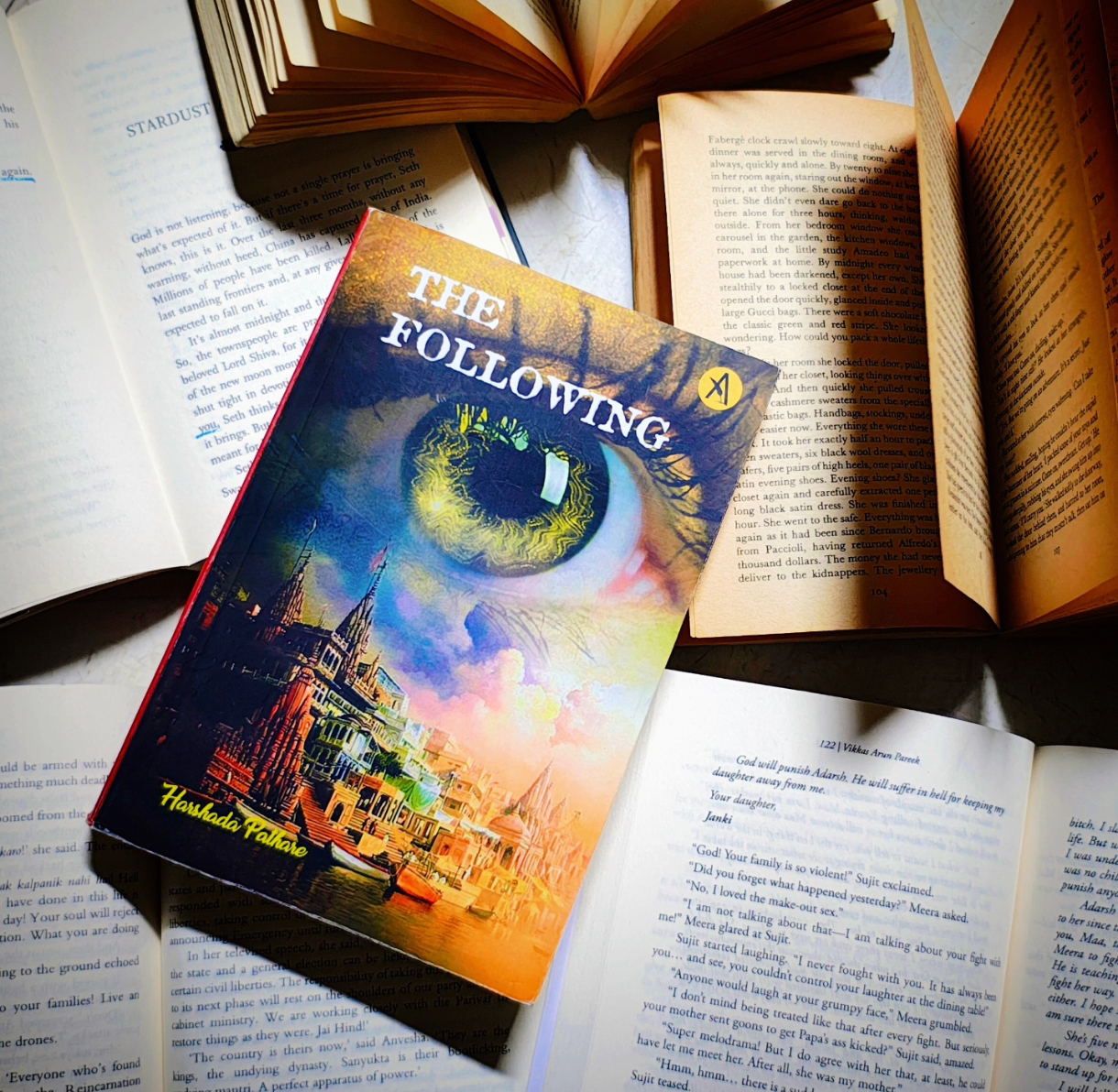Book Review: the Book of Everlasting Things by Aanchal Malhotra
After reading "The Train to Pakistan", I always wondered why the Partition happened in the first place. Why couldn't everyone live together as they did before? These thoughts haunted me for days.
I was fascinated by the beautiful cover and title of another book 'The Book of Everlasting Things by Aanchal Malhotra', and after seeing many Instagram posts praising it, I finally decided to get my hands on it. The book was a wholesome experience. The author takes you on a journey to pre-Partition Lahore, a time when Hindus and Muslims lived together in harmony. The narrative also transports you to the perfume city of France, spanning four generations of a family.
To give you a peek inside, the book revolves around Sameer and Firdaus, but it also delves into the life of Vivek and his love. Sameer Vij, a young boy with a gifted nose, inherited the skill of perfumery from his uncle Vivek. Vivek had set up the perfumery when he returned to India after World War II. Firdaus, the daughter of a calligrapher, had a gift for calligraphy and was trained by her father. They met at age 10 when Vivek offered to create a special perfume for the calligrapher's unique text.
In return, the calligrapher offered to write beautiful labels for the perfume bottles. Soon, the friendship between the Vij and Khan families flourished, as did the bond between Sameer and Firdaus. But just as they were on the verge of youth, beginning to understand their attachment, the India-Pakistan Partition occurred. Sameer lost his family in the flames of Partition and moved to Delhi, where Firdaus refused to see him.
He soon fled to France, trying to escape his haunted past. However, the ghosts of his past and his love for Firdaus and perfumery continued to haunt him. One day, he discovered a journal written by his uncle Vivek, and things changed for Sameer. He returned to his roots and embraced his special gift for creating perfumes. And so, the story continues...
The book delves deeply into the world of perfumes, and I loved the parts where the author explained the uniqueness of scents, demonstrating profound knowledge of perfumery. Though Sameer and Firdaus never got their happily ever after, it didn’t stop them from loving each other. Such beautiful love stories are food for the soul.
While reading the book, I longed to visit pre-Partition Lahore through the eyes of Sameer and Firdaus. That’s the beauty of the book; it takes you to places you can't physically go. At times, I felt they could have fought harder for each other. Other times, I felt society was incredibly cruel. I often wondered why Partition was necessary. Why was it required to uproot people from their birthplaces? I still believe Partition was unnecessary; it just left people with hurtful memories and a haunted past.
The beautiful combination of perfumes and calligraphy gave the book a magical touch. It was touching how Sameer used to write letters to Firdaus without expecting a reply, how he created a perfume for her, and later, in her memory, his last perfume work. The story of Vivek and his days abroad during the war is an entirely different tale entwined with Sameer's life.
Even though I felt Sameer neglected his present in a desperate attempt to hold on to his past, his roots, his family, and his Lahore, a past like Sameer’s is hard to let go of. The book was simply beautiful and stayed in my mind and heart for days.
I wanted to write this blog from last few weeks but was overwhelmed by the story and the emotions it evoked. I had so much to say, but words seemed inadequate. I guess some books are like that; you can’t fully explain your true feelings about them. All I can say is you should pick up this book and read this beautiful love story because it’s not just a love story; it’s about the most brutal event that happened to Hindustan—the Partition. The Partition's detrimental outcomes still affect us today.
Tell me, how did you like the book? And what are your thoughts about Partition? Because if I could change one thing from the past, it would be the India-Pakistan Partition.













Great review , looking forward to add this book in my weekend reads
ReplyDelete